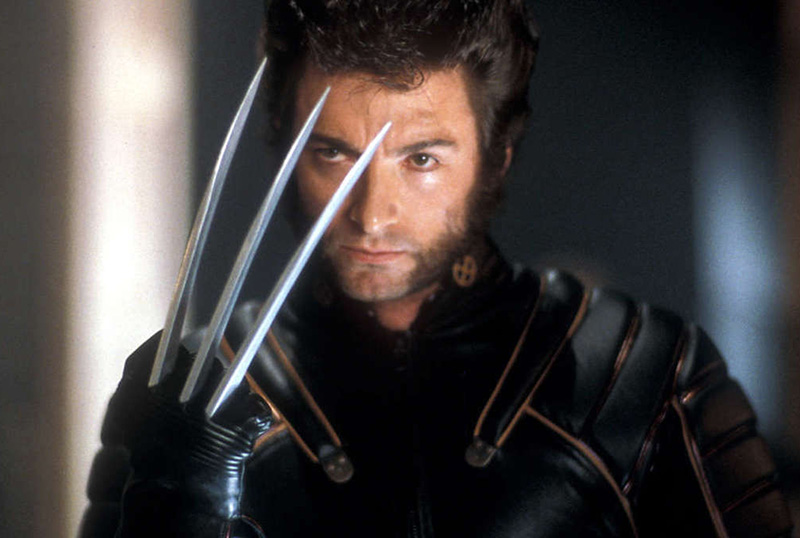The first film in Fox’s X-Men franchise proved to be one of the most revolutionary in helping launch the comic book genre on the big screen. However, some may not realize the troublesome development its script went through but now it’s all been brought to light on its 20th anniversary in a new oral history from The Hollywood Reporter.
RELATED: Josh Boone on How X-Men: Apocalypse’s Failure Changed New Mutants
Development on an X-Men film adaptation first began in 1984 at Orion Pictures an languished in development hell for over 15 years, with various writers and directors attached including James Cameron (Titanic), Katheryn Bigelow (The Hurt Locker) and Andrew Kevin Walker (Sleepy Hollow) before finally landing at 20th Century Fox a decade later. After three more years of searching for the right writer, with such names attached as Ed Solomon (Men in Black), John Logan (Gladiator) and James Schamus (Crouching Tiger, Hidden Dragon), the studio finally landed on Bryan Singer to helm after the release of The Usual Suspects and brought in the neo-noire’s screenwriter Christopher McQuarrie to conduct a three-week rewrite.
But despite reuniting the two, the drama in the writers room only continued as by October of 1998, a few months after his being hired, McQuarrie had yet to turn in a draft and Fox pulled the greenlight from the project until Tom DeSanto and Singer began working on a script together just before Christmas to put the project back on track. Sometime later, still hoping to perfect the script, Joss Whedon (who was taking off at Fox with the hit teen supernatural series Buffy the Vampire Slayer) was brought in for a rewrite, which producer Lauren Shuler Donner called “so good,” praising its humorous nature while also noting that it was exactly that jokey sensibility that Singer rejected, as he was searching for a “much more serious and more dramatic” film, with just two lines of Whedon’s dialogue making it into the final cut.
Sources also report that despite having access to a number of A-list writing talent, Singer brought in unknown names, most notably David Hayter, who at the time was acting as a voiceover artist, re-dubbing anime for English audiences while also portraying of Solid Snake in 1998’s Metal Gear Solid. Hayter had previously been Singer’s assistant, and the director turned to him thanks to his extensive comic book knowledge, having him sit in on script meetings with Peter Rice and Tom Rothman and secretly write new scenes for the script.
“Ralph Winter knew and he asked me to highlight everything I’d done in the script at that point, and it was about 55 percent of the script,” Hayter said. “Ralph went to Peter Rice and said, ‘Look, here’s the deal. David, the phone guy, has been writing the script. You have to make a deal with him or we are in serious legal jeopardy. Peter called me into his office and offered me $35,000 and said, ‘That’s all you’ll ever get. Be happy with that.’”
RELATED: X-Men Cast Reunion Crashed by Origins Star Ryan Reynolds
Some sources report that the final shooting script was mostly comprised of Solomon and McQuarrie’s materials with some contributions from Hayter, but that due to the turmoil and secretive planning on Singer’s behalf, the future Mission: Impossible writer/director was angry with the studio and persuaded Solomon to remove his name from the film along with his own, leading to Hayter getting sole credit and Singer and DeSanto receiving story credits.
“At the time, I no longer wanted my name on a movie if it wasn’t entirely my work,” Solomon said. “It came more out of immature self-righteousness than anything else, and, in hindsight, it was a stupid move.“
“Chris gave up at least $1 million the first year in residuals and credit bonuses,” Hayter added. “Same with Ed. It’s unheard-of.”
Despite other on-set troubles, the film would finally hit theaters in 2000 to rave reviews from critics and audiences and was a box office smash, grossing nearly $300 million on its $75 million budget and spawning a 20-plus-year franchise that is set to conclude with the long-awaited New Mutants from Josh Boone.
Singer and Hayter would return for the second film in the franchise, X2: X-Men United, which saw Hayter and Zak Penn (Ready Player One) write separate scripts and combine them with rewrites from Michael Dougherty (Godzilla: King of the Monsters) and Dan Harris. Penn’s credit would be shifted only to a “Story By” with Hayter and Singer, while Hayter retained a “Screenplay By” credit with Dougherty and Harris, both of whom would reunite with Singer for Superman Returns.
For more details on X-Men‘s tortured history, including how a young Kevin Feige was tasked to help contain Bryan Singer’s erratic behavior on set, read the full article here!










